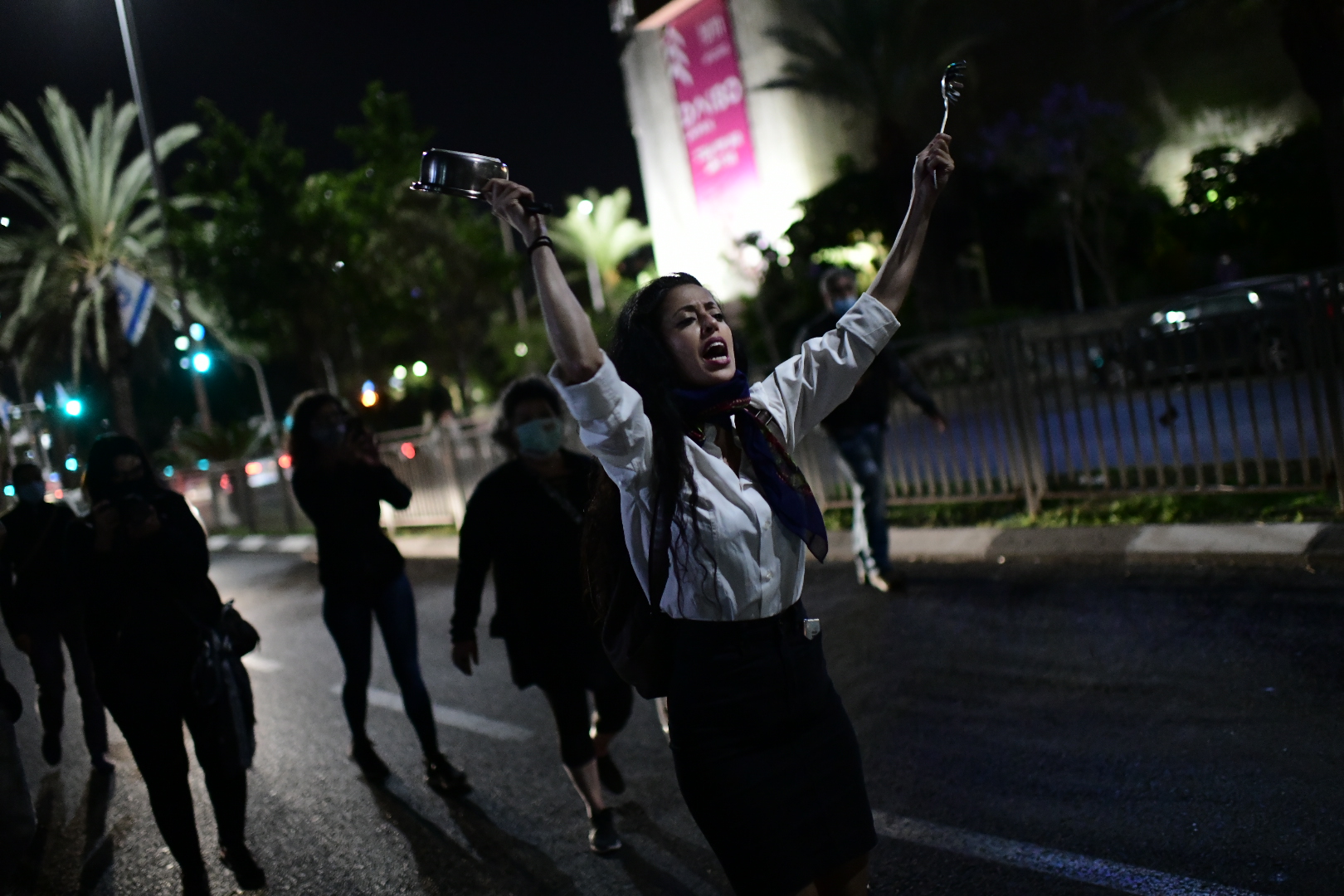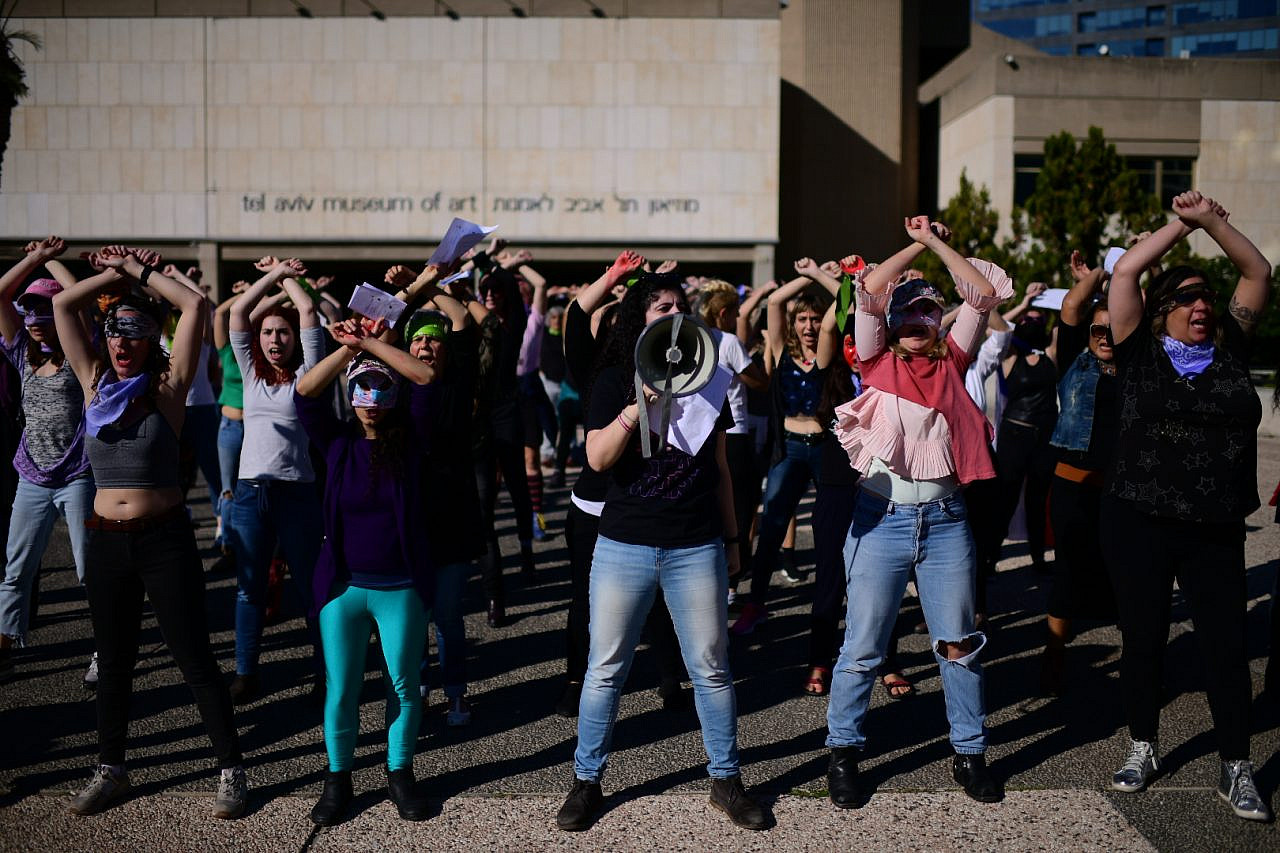A man decided his wife and daughter were spending too much time on their mobile phones during quarantine, so he tied them up and beat them. A woman answered a knock on her door one night to find her neighbor, bleeding from the nose after her husband abused her, standing with her son, asking to make a phone call. A survivor of abuse stopped taking her medication and developed suicidal tendencies after her therapist refused to treat her over Zoom, because he doesn’t believe in remote therapy.
These are just some of the cases women’s organizations in Israel have had to respond to since the coronavirus outbreak began in the country. Government directives to shelter at home may be flattening one curve, but they have led to a spike in another, as incidents of domestic and gender-based violence have multiplied — a global trend UN Women has described as “the shadow pandemic.” Six weeks into a nationwide lockdown, the Israeli government has yet to offer timely solutions, leaving survivors of abuse in danger, say women’s rights advocates.
Since March 1, five women and a 10-month-old baby girl have been killed by men in their family. According to the national supervisor on domestic violence, who spoke at an emergency Knesset meeting on Sunday, two men and two women committed suicide due to the threats they faced in their own homes. During the same period, police noted a 16 percent increase in domestic abuse offenses, and reports to the domestic abuse hotline of the Labor, Social Affairs and Social Services Ministry have more than doubled.
Orit Sulitzeanu, the executive director of the Association of Rape Crisis Centers in Israel (ARCCI), says there was a 50 percent increase in reports to the organization’s online emergency chat in April compared to the same period in 2019. Women Against Violence, which operates a hotline in Arabic for Palestinian citizens, recorded a 42 percent increase from March 15 to April 15 relative to last year.
Women’s confinement with their abusers, compounded by the uncertainty of when the coronavirus crisis will end and growing economic stress, is “a bubbling pressure cooker,” says Michal Gera Margaliot, the executive director of the Israel Women’s Network. “This is the worst-case scenario for domestic violence.”
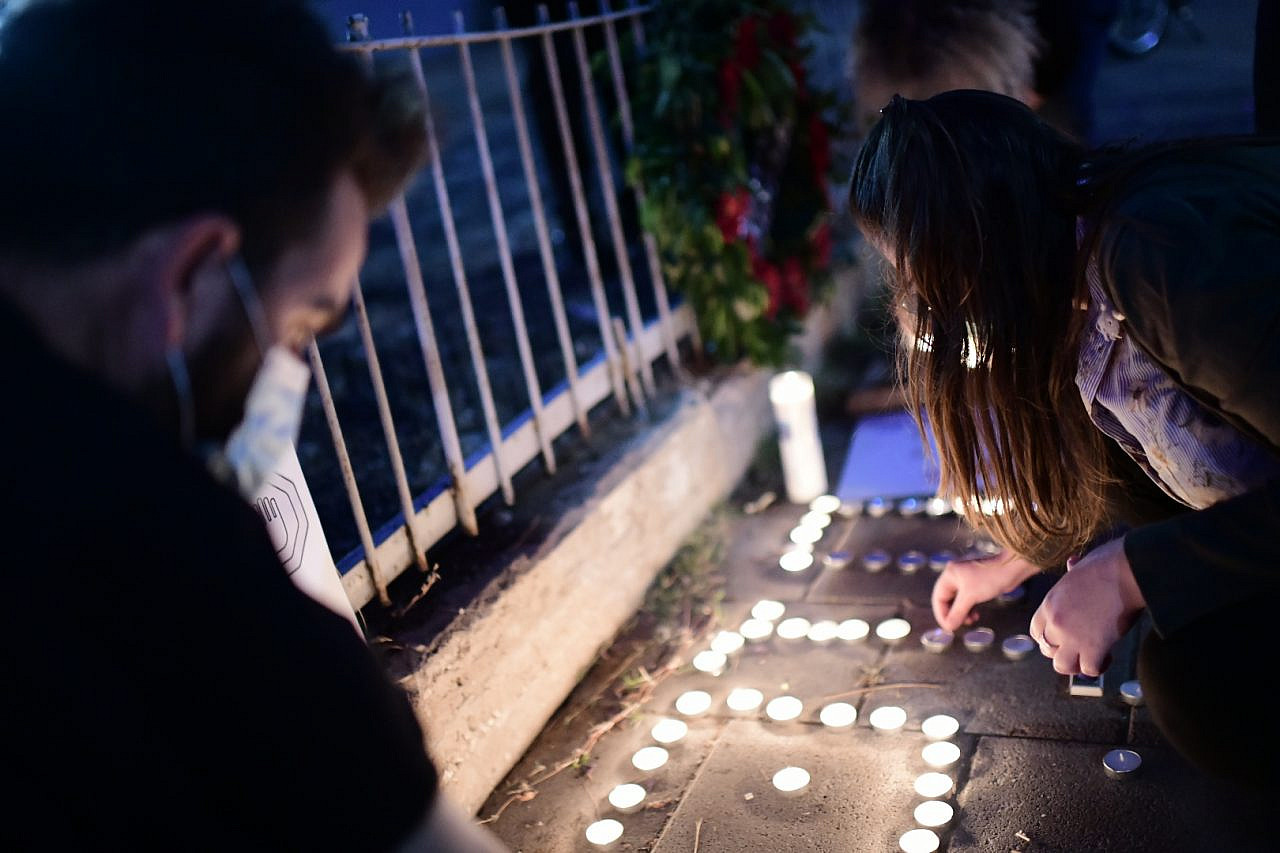
In past national emergencies, domestic violence reporting tended to drop at first and surface only later, adds Gera Margaliot — not because incidents of abuse weren’t taking place, she explains, but because survivors didn’t feel safe or couldn’t come forward. With the outbreak of the pandemic, however, there was an immediate spike in numbers.
“The brief breaks that would give abused women some breathing room — when their perpetrator would leave the house to go to work, for example —are gone,” says Samah Salaime, the director of Na’am, a women’s organization operating in the Ramleh, Lyd, and Jaffa area, and a +972 Magazine contributor. “All these women are left with is the pressure.”
The threats that abused women face go beyond physical violence: it is the collapse of the formal and informal support systems that many have come to rely on, which has left them overwhelmed and particularly vulnerable. At the start of the coronavirus crisis, the government shuttered its welfare services as a preventative measure against the spread of the disease. After pressure from civil society organizations, social workers were brought back in full capacity.
Counselors were also not recognized as essential workers, and are still on leave. Part of Women Against Violence’s work in the crisis has involves advocating for their return, so that they can resume working on cases. The organization is also calling for single mothers to be allowed to qualify for subsidies on a national level, and to be exempt from property tax at the municipal level, as are businesses and civil society groups.
Domestic violence in a militarized society
The Prime Minister’s Office initiated a roundtable in late March to deal with the impact of the coronavirus crisis on women in Israel. Half of its members are state agencies, including representatives from the Social Services Ministry and police, and the other half, chaired by Gera Margaliot, are civil society organizations.
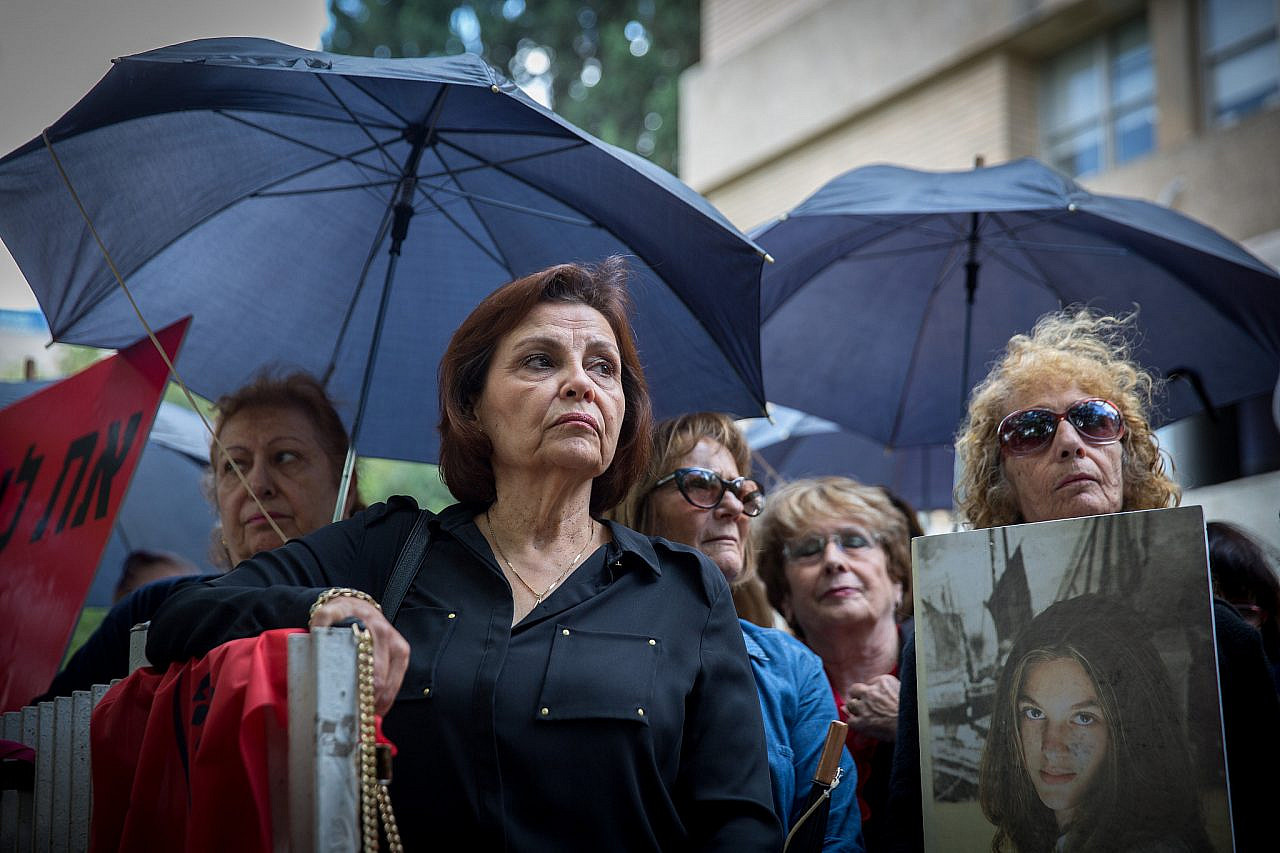
The roundtable discussions have led to some action. The Social Services Ministry is now operating a “silent” hotline, allowing survivors who cannot call while quarantined with their abusers to report their cases via text messages; it is also planning a multilingual campaign to publicize this resource.
This week, a new shelter is set to open for abused women who need to be placed in quarantine, after civil society groups voiced a need for one. The state’s existing 14 shelters are close to full capacity — a statistic that is unlikely to change, given that survivors have nowhere to go to even if they are ready to re-enter society.
While government officials have been listening and taking steps in the right direction, their answers are still “not effective,” says Rela Mazali, the co-founder and coordinator of Gun Free Kitchen Tables, a coalition of 17 organizations that seeks to curb arms proliferation in Israel.
Based on global research — Israel does not collect official national data on gun crime — the chances of women being abused or killed is much higher when there are guns at home, states Mazali, who also participates in the government’s cross-sectoral roundtable.
Sometimes the violence is non-lethal, she explains. “A gun can be hugely threatening in oppressing a woman, in constraining her actions, and totally subjugating her, just by being there.”
In mid-March, the Public Security Ministry instructed companies to collect weapons from security guards who were placed on furlough, which, according to a tweet by Public Security Minister Gilad Erdan, amounts to upward of 5,000 arms. But the authorities have yet to say how this effort is being enforced, and who is tasked with overseeing it, says Mazali.
It is also unclear what percentage those guns represent of all arms in Israel, she adds. Based on Gun Free Kitchen Tables’ estimates, there are hundreds of thousands of gun carriers in the country — not only members of the police force and prison service, but also employees of private companies or residents of gated communities who are authorized to bear arms.
The difficulty in communicating the threat guns pose to abused women is a testament to the extent of militarization in Jewish Israeli society, explains Mazali. “Military guns are not viewed as a threat by Jewish Israelis. They are almost automatically tagged as protective, defensive, and so we learn very early on, as young kids, to unsee them.”
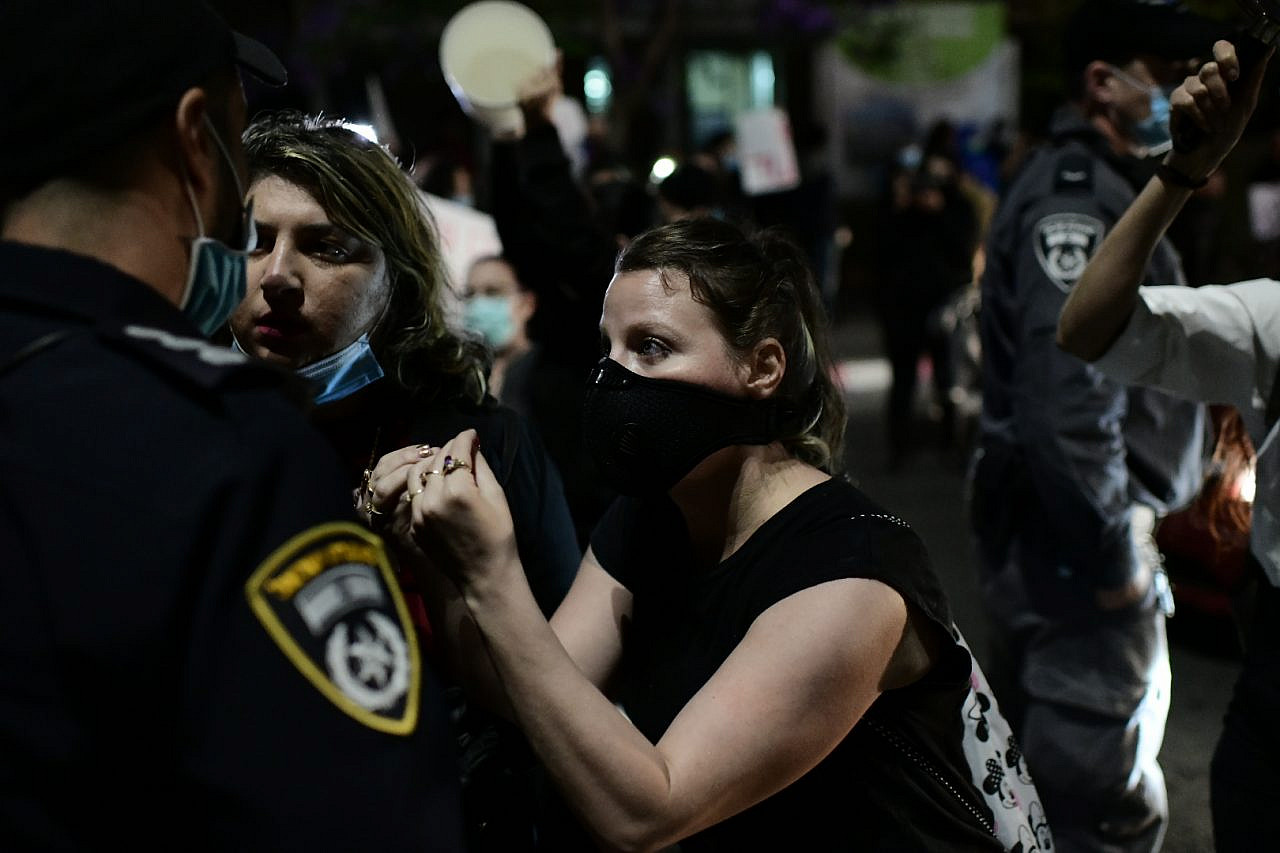
The hardware of occupation and that of women’s oppression in their homes is one and the same: guns, she says. One of her organization’s goals is to work against that militarization, “just to get Israeli Jews to realize that guns are in fact a threat, and that they do kill, and that they do turn against the people that they’re supposed to protect.”
This securitized norm also shaped Israel’s response to the pandemic. “Under the coronavirus, everything was immediately phrased and conceptualized in militarized terms,” says Mazali. Far beyond that, efforts to combat the spread of the pandemic were in effect handed over to military authorities, she adds.
‘Engaging in guesswork and putting out fires’
For Naila Awwad Rashed, the director of the Nazareth-based Women Against Violence, the government’s response has been a debacle, as is expected when it comes to civil and social affairs, she says. “The state, in all respects, failed to show responsibility toward its citizens, and doubly so when it comes to Palestinian citizens,” she adds, noting that Palestinian women are subjected to several layers of neglect.
Women’s organizations could all have anticipated the jump in domestic violence — unlike the government, which had no action plans at the ready, says Awwad Rashed. Now, it’s busy engaging in guesswork and putting out fires. “I’m not saying there aren’t professional workers in these ministries who shoulder the burden, but who determines the policies? The leaders,” she states.
Given the government’s slow — sometimes absent — response strategy to the coronavirus in Palestinian cities and towns, the High Follow Up Committee, an umbrella organization that represents the country’s Palestinian citizens, created the Arab Emergency Authority, of which Awwad Rashed is a member. Even there, experts initially failed to identify and plan for women’s affairs, she says. “We had to demand that they discuss gender-based violence, that they publish the hotline numbers on the Authority’s official Facebook page, and that local authorities also share these resources,” she explains.
“We’re doing the work for [the government]. We’re serving them solutions on a silver platter,” says Salaime of Na’am, who is also participating in the roundtable. During the first week of the outbreak, she helped organize an online protest against gender-based violence, in which, according to Salaime, more than 100,000 people took part.
“We’re finding ourselves not only having to respond to cases in the field, but also having to keep track of government policies, when the government itself is confused,” she continues. “We’re slowly coming out of the crisis and the authorities are still contemplating appropriate implementation models.”
In a previous roundtable meeting, recalls Salaime, the Social Services Ministry said it was working on a Google form for abused women to fill out, so that the ministry can map out their needs. But how can a woman in an unrecognized village, for example, with no access to basic infrastructure, fill out this form? she asks.
Instead, Salaime suggests that authorities should actively check in with abused women — at least those who are already in their systems. She also calls on the government to recognize the expenses that women’s organizations have had to incur due to the spike in violence, and to compensate them retroactively.
Nonetheless, advocates say that without systemic change, the same oversights and failures to protect women will continue. For Sulitzeanu of ARCCI, the problem is not with the state representatives at the roundtable, of which she is also a part; the Social Services Ministry staff “are professionals,” she says. Her issue is with Israel’s systematic neglect of marginalized groups in society. Without political power, these groups, including abused women, are left behind, making anything other than patchwork solutions near-impossible to achieve.
Women’s organizations were lacking sufficient resources before the pandemic, says Dr. Yael Hasson, head of gender research at the progressive Adva Center, because tackling domestic and gender-based violence is not on the state’s list of priorities. In her research, Hasson identified two main structural problems: the absence of a central state authority responsible for implementing a national plan and streamlining coordination between the different relevant organizations; and a severe shortage of funds that creates a gap between the services abused women need and what they actually get.
For Gera Margaliot, the necessary change will not come unless women are able to actively participate in shaping policies, she says.
“What’s truly stunning is that we are not a priority at the decision-making level. It’s unbelievable,” she says, pointing out that the team assembled by the National Security Council to steer Israel out of the pandemic does not have any women experts.
The solution is to mainstream gender in policy-making, she states. “Including gender perspectives at the decision-making level has no alternative.”
Correction: A previous version of this article stated that there are around tens of thousands of guns in Israel. A more accurate estimate is hundreds of thousands, and the article has been updated accordingly.

